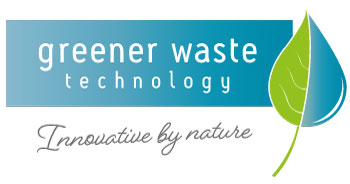CaseStudy: Scotland
Sewage Treatment Works
The BioCube is a unique bacteria acclimatising and bulking unit which doses active bacteria strains into primary settlement tanks. The small dosing system is roughly the size of an IBC and sits on a flat level surface. It is plug and play being fully automated and simply requiring a 240v supply.
Screened sewage is pumped into the BioCube where dried bacteria pellets sit in an aerated chamber. The chamber is aerated for four-six hours to enable the bacteria to start multiplying and feeding on nutrients within the effluent, this phase also acclimatises the bacteria stock to the type of effluent it will be introduced to in the works.

The Site
The sewage treatment works has a population of 7,000 with a process consisting of primary settlement (PSTs), 6 filter beds, humus tanks and four SAF units.
A sewage treatment works was suffering from high ammonia and BOD levels even with the support from the SAF units.
Two BioCube dosing units were added to site to help improve performance and to optimise the operation of all the elements of the works. The main aim was to improve the ammonia and BOD levels across the site to ensure consent parameters could be comfortably met.
Visually the site also suffered from floating sludge in the PSTs and PAC was being dosed prior to the PSTs to try and improve settlement.
The Improvements
The site manager noted several important areas of improvement on site which increased the efficiency of each phase of the process. There are obvious cost savings and cost saving opportunities associated with many of the improvements which when scaled up could have huge potential in terms of Utility wide cost reduction.
The senior site op for the site made several comments about the BioCube process:
“The BioCube install at this WWTW went really well. The fitters who came on site were very good and within a week there was a big change in the PST tanks with better settlement and the sludge volume was the same but better quality. The raw sewage going back up to the baf saf plant was more settled with over 900 clarity been returned to the filter plant- we have not had any problems with the BioCube plant since it was put on site.”
Observations included:
-
The complete removal of floating sludge from the PSTs
-
A reduction in PAC dosing
-
Improved settlement in the PSTs with a more consolidated, less fatty/slimy sludge
-
Sludge is easier to de-water making sludge drying more efficient and providing an opportunity to reduce tanker volumes in the future if the facility is available
-
Less load is being passed forward to the filter beds
-
Improved filter bed performance
-
Improved SAF performance- no foaming and no clogging of media/media loss
-
Comfortably hitting the site BOD target
-
Flexible process as it impacts on every element of the treatment syste
Potential cost savings and areas for future savings:
-
£20,000 per annum on operator overtime from servicing filter beds, pumps, pipework and PSTs associated with fat reduction and settlement improvements
-
£5,000 per annum on improved SAF function and media loss
-
£15k cost saving on the reduction of PAC (PAC reduction of 50%)



The Conclusion
The units are an incredibly cost-effective way of managing and optimising sites for a TOTEX environment using a simple bolt on process with no disruption to site or civil work.
Cost savings can be in excess of £20k per site depending on the use of the process which companywide can impact hugely on the running costs of small to medium sized works.
The units provide unique carbon footprint improvements of up to 99% and aid in addressing population creep without environmental impact or increased health and safety risks (as in the case of chemical use or civil alteration).
The BioCube will impact on every element of the process so can be a cost-effective alternative to SAF hire or use, saving on carbon footprint, installation and energy costs. On a small site in energy costs alone the BioCube can save over £8,000 compared to SAF use using a much smaller footprint.
For more information or case studies/ data please contact Lucy Glaves on 07968 777 539 or click here to email us and we’ll call you back.
